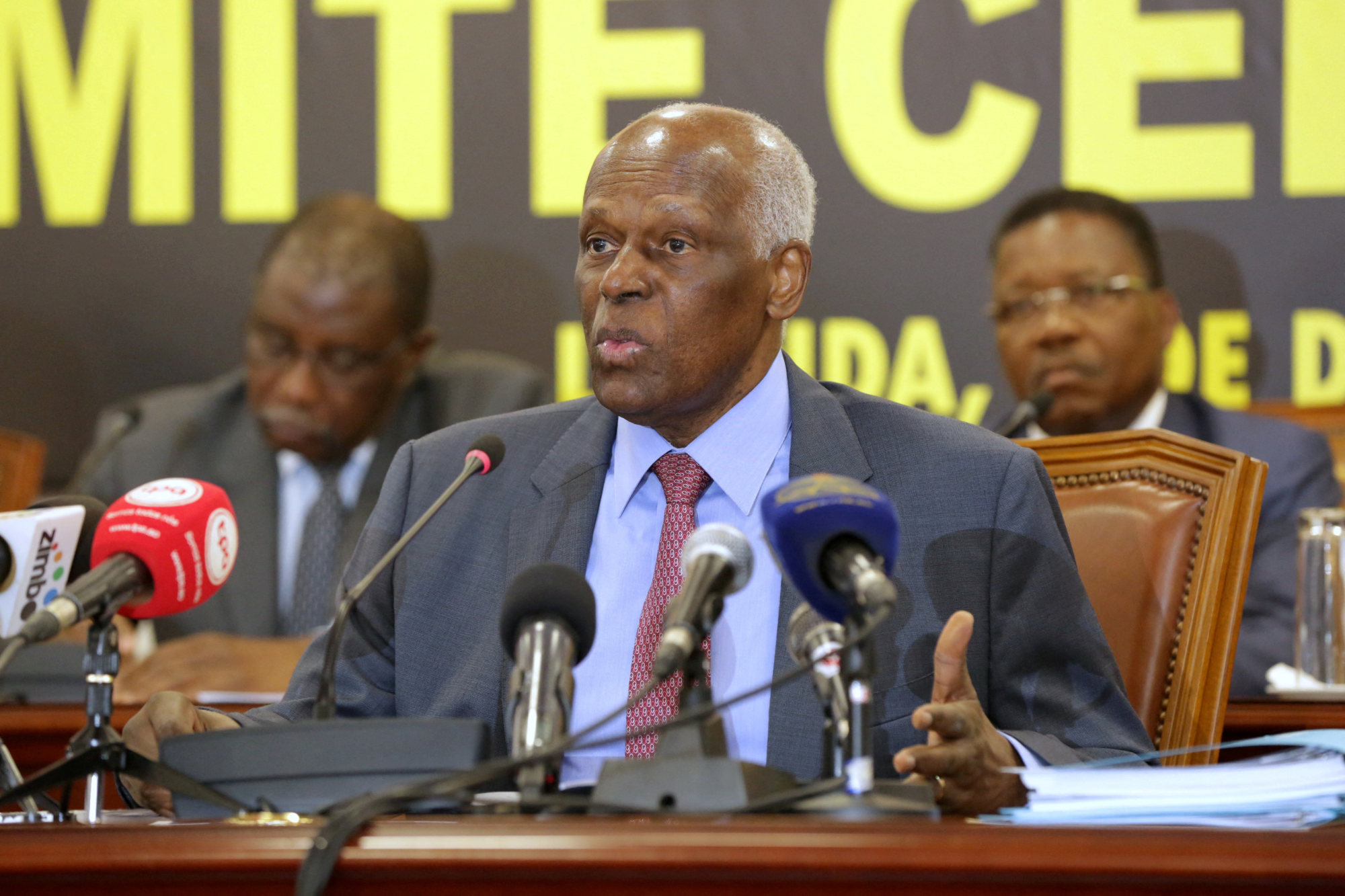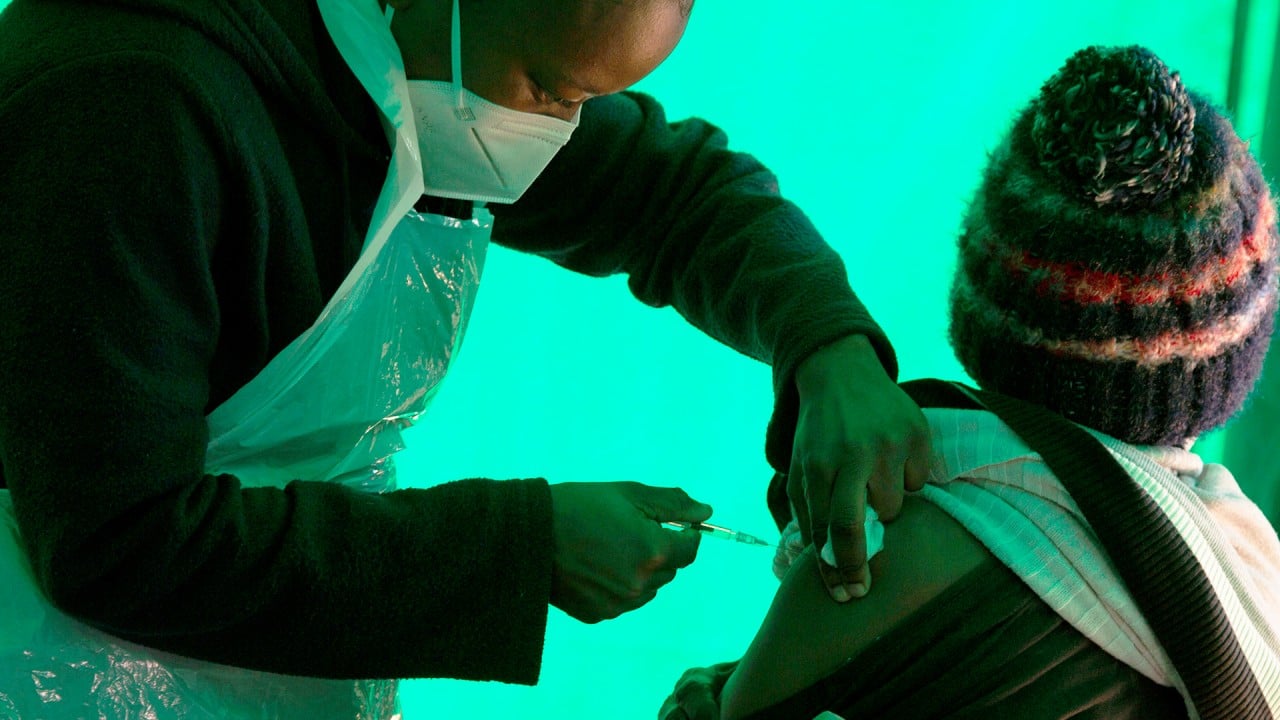
With re-election secure, Angolan president is expected to reduce country’s dependence on China
- Angola has borrowed US$42.6 billion from Chinese lenders, much secured with oil as collateral but President Joao Lourenco has said such loans are not working
- Any shift is likely to be gradual: ‘China would remain the major buyer of Angolan crude for as long as Angola has to settle significant … debts’, one analyst says
On Monday, Angola’s Constitutional Court rejected the request – brought by the main opposition party National Union for the Total Liberation of Angola (Unita) – to annul the results of the August 24 general election, contending that it was marred by irregularities. That cleared Lourenco, 68, to be sworn in for a second term later this month.
Lourenco’s ruling party, the Popular Movement for the Liberation of Angola (MPLA), received 51 per cent of the vote, continuing its hold on the country since Angola won independence in 1975. Unita got 44 per cent, according to the electoral commission.

Dos Santos had invited China to invest after Western governments declined to help the country’s reconstruction following the 2002 end of the 27-year Angolan civil war, saying it was risky.
Angola eventually became Africa’s biggest destination for Chinese capital, receiving US$42.6 billion from Chinese lenders – more than a quarter of China’s total lending to African countries between 2000 and 2020.
But Gerrit van Rooyen, an economist at Oxford Economics Africa, said Lourenco was expected to “continue with reforms to diversify the economy away from oil and to reduce Angola’s dependence on China”.
China would remain the major buyer of Angolan crude for as long as Angola has to settle significant outstanding Chinese debts
“The reforms are necessary to attract bigger foreign investment from a greater variety of sources, and to reduce Angola’s vulnerability to volatile oil prices and declining crude production,” van Rooyen said.
During his first term, Lourenco described the country’s economic diversification as “a matter of life or death” for Angola’s long-term prospects.
In 2019, he admitted that the concept behind the oil-backed loans the country had signed with China was not working.
“Such kinds of credit lines had a condition that the debt would be switched out with oil as collateral,” he said then. “But today we are discontinuing such a practice … advised by the IMF and the World Bank.”
As president, Lourenco has led an anti-corruption campaign targeting his predecessor’s family and close associates, with a number of them charged. Isabel dos Santos, the ex-president’s eldest daughter, stands accused of money laundering and mismanagement while head of state-owned oil company Sonangol.

Van Rooyen said, however, that any shift in economic and diplomatic relations with Beijing would probably be gradual. “China would remain the major buyer of Angolan crude for as long as Angola has to settle significant outstanding Chinese debts.”
At the end of 2021, Angola owed China more than US$20 billion in debt advanced by the Export-Import Bank of China, China Development Bank (CDB) and Industrial and Commercial Bank of China (ICBC).
Going forward, van Rooyen said, “China will probably try to win influence in Angola through different means than the oil-back loans which characterised Sino-Angolan relations in the 2010s”.
Recent examples of a change in China’s influence strategies in Africa, he noted, included “the donations of Covid-19 vaccines, the removal of imports tariffs for least-developed nations, and the cancellation of interest-free loans to 17 African countries”.
When its civil war ended and Angola sought investors, it coincided with Beijing’s “going out” strategy, which encouraged state-owned or private companies to venture overseas.
The resulting infrastructure boom, especially in housing, roads and power plants, attracted several Chinese companies; in 2004 the Export-Import Bank of China pledged US$2 billion in oil-backed loans to finance reconstruction.
In what came to be known as the Angola model, Luanda pioneered the concept of oil-backed loans as an easy way to get Chinese financing for the building of roads, hydroelectric dams and railways.
It was successful until oil prices fell, forcing the country to pump more oil to service its debt. After 2014, when global oil prices plummeted to below US$50 a barrel from a high of US$115, the Angolan fell into recession in 2016 then contracted for five consecutive years. The Covid-19 pandemic exacerbated the problem; Angola recently narrowly avoided a debt default.
China agreed in 2020 to allow Angola to defer debt payments after the pandemic worsened its economic prospects. The debt payment freeze is to end in the second quarter of 2023.
Last year, CDB and ICBC handed Angola a three-year debt relief package of at least US$4.9 billion from 2020 to 2023, according to data tracked by the China Africa Research Initiative. Luanda also received an undisclosed amount of debt relief from the Export-Import Bank of China.
Dominik Kopinski, an associate professor at the University of Wroclaw in Poland who studies China’s dealings with Africa, said that with the MPLA’s win, “I don’t think these elections mark any new chapter in Sino-Angolan relations which for some time have been turning sour”.
“Angola learned the hard way that the ‘marriage of convenience’ with China may be too pricey,” Kopinski, a founder of the Polish Centre for African Studies, said.
“China on the other hand realised that it had become dangerously overexposed in Angola in terms of loans and outstanding projects.”
The number of Chinese in Angola reached a peak of more than 300,000 during a post-civil war construction boom. That number has dropped to less than 20,000 today, according to researchers.


